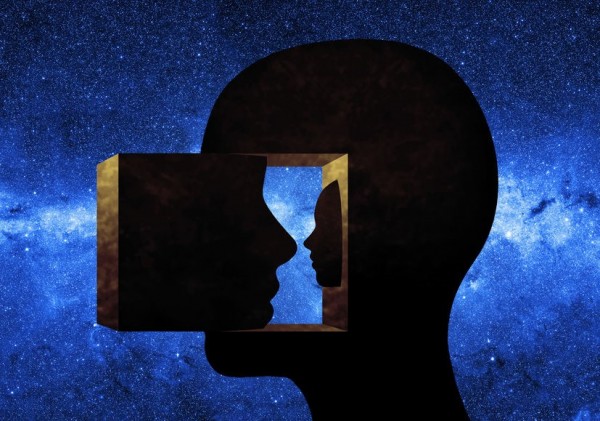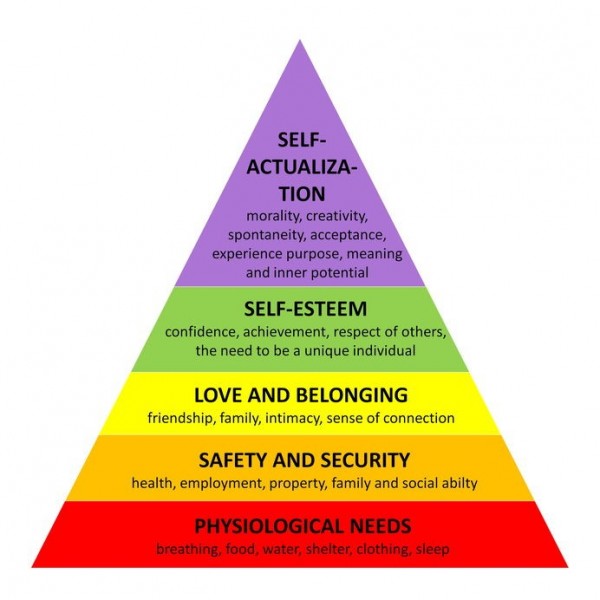
 Psychology is the study of the mind, how it works, and how it affects behavior (MEDICALNEWSTODAY). Most commonly psychologists use talk therapy to help their patients.
Psychology is the study of the mind, how it works, and how it affects behavior (MEDICALNEWSTODAY). Most commonly psychologists use talk therapy to help their patients.
Psychologists can make clinical evaluations of a client’s mental health, diagnose mental illness, and suggest treatments based on research into human behavior. Psychologists typically provide counseling, psychotherapy, and may do psychological testing including IQ and neurological function tests. A licensed psychologist can’t write prescriptions; they are not medical doctors. However, some may work with a psychiatrist who provides medical treatments, while they provide psychotherapy.
American Psychological Association/What do practicing psychologists do?. (2019, December 11). Retrieved from: https://www.apa.org/topics/about-psychologists
Counselor-License.com/Psychologist vs. Counselor. Retrieved from:
https://counselor-license.com/articles/psychologist-vs-counselor/
MEDICALNEWSTODAY/What is psychology and what does it involve?. Retrieved from:
https://www.medicalnewstoday.com/articles/154874
WebMD/Guide to Psychiatry and Counseling. Retrieved from:
https://www.webmd.com/mental-health/guide-to-psychiatry-and-counseling#1
HumanServicesEdu.org/Human Services Guide/Counselor vs. Therapist vs. Psychologist.
Retrieved from: https://www.humanservicesedu.org/counselor-vs-psych-vs-therapist.html#context/api/listings/prefilter
Ancient Civilization
During medieval times, Islamic doctors are said to be the first ones to integrate psychiatric conditions into hospitals in medieval times. Avicenna, the famous Muslim doctor, born in 980 AD, studied and treated epilepsy, nightmares, and poor memory (MedicalNewsToday). In Egypt the earliest recordings of using psychology date back to the 7th Century B.C.
Psychology Becomes a Scientific Discipline – First School of Thought: Introspection
Psychology emerged as a scientific disciple from the advancements made in physiology and philosophy. Early physiological research on the brain and behavior had a dramatic impact on psychology, ultimately contributing to applying scientific methodologies to the study of human thought and behavior (Baker 2020). Psychology grew in the 1800’s with Wilhelm Wundt a physician, physiologist and philosopher. He was considered to be the first one to formally develop psychology into a discipline.
 In 1979, Wundt opened the world’s first psychology lab making it an official scientific discipline. He saw psychology as experimental, and he created classes, textbooks, and provided labs for teaching students. Wundt had people coming from around the world to study and work in his labs. He created the psychological study of introspection. People were taught how to create detailed reports of their own perceptions and reactions in different environments and situations. This helped with the understanding of consciousness. The work of Wundt and his students demonstrated that the mind could be measured and the nature of consciousness could be revealed through scientific means (Baker 2020). However, introspection eventually disappeared because it was considered unscientific and unreliable.
In 1979, Wundt opened the world’s first psychology lab making it an official scientific discipline. He saw psychology as experimental, and he created classes, textbooks, and provided labs for teaching students. Wundt had people coming from around the world to study and work in his labs. He created the psychological study of introspection. People were taught how to create detailed reports of their own perceptions and reactions in different environments and situations. This helped with the understanding of consciousness. The work of Wundt and his students demonstrated that the mind could be measured and the nature of consciousness could be revealed through scientific means (Baker 2020). However, introspection eventually disappeared because it was considered unscientific and unreliable.
Psychology Arrives in America – Second School of Thought: Structuralism
Psychology emerged in America in the late 1800’s with Edward Bradfort Titchener, a student of Wundt’s. He started a new brand of psychology known as structuralism. This focused on breaking down mental processes into basic components to understand what consciousness is. It was considered the first school of thought, but eventually died out after being seen as unscientific and unreliable.
G. Stanley Hall made many significant contributions to the growth of psychology in America. In 1883 he created the first American psychological laboratory, in 1887 he formed the American Journal of Psychology, and in 1892 he founded the American Psychological Association.
Third School of Thought: Functionalism
William James was one of the major American psychologists in the 1800s, and a leading figure. In 1890 he created the textbook “Principles of Psychology,” one of the most influential books on psychology that became a standard text. It was used as a guide for the new school of thought called functionalism. Functionalism was about using direct observation to study people’s behaviors, and how they related to the mind. James believed consciousness was ongoing – it allows people to adapt and make choices that they take personal responsibility for, and it can’t be broken down into components. Functionalism eventually disappeared, but it helped in the creation of other schools of thought for psychology including animal and comparative psychology.
Fourth School of Thought: Psychoanalysis
Sigmund Freud completely changed the field of psychology in 1890 with his theory of personality that focused on the unconscious mind referred to as psychoanalysis. Freud’s clinical work with patients suffering from hysteria and other ailments led him to believe that early childhood experiences and unconscious impulses contributed to the development of adult personality and behavior (Baker 2020). Freud’s concepts of psychological disorders resulting from unconscious conflicts has influenced not only mental health, but also art, literature, and pop culture into the 20th century.
French psychologist Alfred Binet created modern intelligence tests in 1904. He designed them with the purpose of finding children who needed extra educational support.
Fifth School of Thought: Behaviorism
Psychology went through another dramatic change with the new concept of behaviorism introduced by Ivan Pavlov in 1913. Behaviorism centered solely around observable behavior removing focus from the conscious and unconscious mind. Psychology then became more scientific. Pavlov showed that behaviors could be learned and unlearned with the right conditioning. This concept became the standard for over 50 years. B.F. Skinner added to this school of thought with the concept of operant conditioning using reinforcement and punishment to change behaviors. Behaviorism is still popular today, although psychology does not center around behaviorism anymore.
Sixth School of Thought: Humanistic Psychology
 During the second half of the 20th century a new concept developed called humanistic psychology. Humanistic psychology is said to be founded by American Carl Rogers. It places great importance on conscious experiences, the power of free will and self-determination. This theory became even more relevant with Abraham Maslow’s famous “hierarchy of needs” for human motivation. This theory suggested that people are motivated by increasingly complex needs. (Cherry, 2019). Only when people’s most basic needs are met, people obtain motivation to achieve needs on a higher level.
During the second half of the 20th century a new concept developed called humanistic psychology. Humanistic psychology is said to be founded by American Carl Rogers. It places great importance on conscious experiences, the power of free will and self-determination. This theory became even more relevant with Abraham Maslow’s famous “hierarchy of needs” for human motivation. This theory suggested that people are motivated by increasingly complex needs. (Cherry, 2019). Only when people’s most basic needs are met, people obtain motivation to achieve needs on a higher level.
Seventh School of Thought: Cognitive Psychology (H4)
A new school of thought for psychology took over between 1950-1960 called cognitive revolution. Cognitive psychology is all about the inner workings of the mind looking at perception, intelligence, language, memory, decision-making, and problem-solving. It is still used today, along with psychoanalysis and behaviorism.
Psychology Today
Psychology has continued to evolve with different approaches and perspectives being researched, developed, and utilized. Today, psychologists use biologic influences on behavior, the impact of social and cultural factors, and more. The majority of psychologists don’t use just one discipline of psychology. Instead, they often focus on a particular specialty area or perspective, often drawing on ideas from a range of theoretical backgrounds (Cherry, 2019).
Cherry, Kendra. (2019, March 9, October 3). verywellmind/The Origins of Psychology/Introspection in Psychology. Retrieved from: https://www.verywellmind.com/what-is-introspection-2795252
Cherry, Kendra. (2019, March 9, October 3). verywellmind/The Origins of Psychology/Introspection in Psychology. Retrieved from: https://www.verywellmind.com/a-brief-history-of-psychology-through-the-years-2795245
MEDICALNEWSTODAY/What is psychology and what does it involve?. Retrieved from:
https://www.medicalnewstoday.com/articles/154874
Baker, D. B. & Sperry, H. (2020). History of psychology. In R. Biswas-Diener & E. Diener (Eds), Noba textbook series: Psychology. Champaign, IL: DEF publishers. Retrieved from http://noba.to/j8xkgcz5
They may choose to specialize in specific mental health illnesses (depression, anxiety, personality disorders, eating disorders, OCD, etc.), ages (kids, teens, adults, seniors, etc.), or specific topics (divorce, death, couple’s therapy, family therapy, career development, multicultural issues, trauma, etc.).
Some psychologists might just conduct research for a private sector, the government, or a university. Other psychologists might own their own private practice, work in a hospital setting, or work for the government.
HumanServicesEdu.org/Human Services Guide/Counselor vs. Therapist vs. Psychologist.
Retrieved from: https://www.humanservicesedu.org/counselor-vs-psych-vs-therapist.html#context/api/listings/prefilter
WebMD/Guide to Psychiatry and Counseling. Retrieved from:
https://www.webmd.com/mental-health/guide-to-psychiatry-and-counseling#1
The mind is incredibly complicated, so there isn’t one form of therapy that necessarily works better than all the rest. Psychologists may study a person’s thought processes, emotions, memories, dreams, perceptions, and etc.
Here are some of the more popular therapy disciplines:
Cognitive & Behavioral Therapy
Cognitive focuses on the way people think, and behavioral focuses on the way people behave. This form of therapy is all about changing current thinking, behaviors, and attitudes placing more emphasis on the present vs. the past. The cognitive-behavioral therapist uses diverse techniques to train the person in problem-solving, skill training, cognitive restructuring, etc. (Exploringyourmind, 2019)
- Acceptance and Commitment Therapy
This form of therapy is really helpful for people suffering from depression. The patient learns how they process problems by understanding their thoughts and behaviors. They learn how to be flexible in their thoughts, and they become more malleable to changing them. - Behavioral Therapy
A patient learns how to evaluate behaviors learned or acquired to see how they affect their lives, and how to change destructive behavioral patterns. Types of behavioral include systematic desensitization (relaxation exercises combined with slowly being exposed to fears), flooding (facing fears right away vs. slowly with systematic desensitization), aversion therapy (learn to associate a behavior with something unpleasant). Behavioral therapy can help with anxiety, ADHD, OCD, phobias, substance abuse, communication struggles, and more. - Cognitive Analytic Therapy
The goal is to help the patient understand why they think what they do or why they behave the way they do (Exploringyourmind, 2019). In only 12 sessions the therapist teaches the patient confrontation techniques to alter certain distorted thoughts or behaviors. - Rational Emotional Behavior
This approach helps you learn how to challenge irrational beliefs that contribute to emotional distress or other issues (Healthline). The individual gains better awareness of their emotions with an understanding of what thoughts are irrational, and how to replace them with rational thoughts.
Psychoanalytical and Psychodynamic Therapy
Psychoanalytic therapy looks at unconscious processes and past experiences (likely from childhood) that affect present behaviors, emotions, or thoughts. This may include looking at dreams or possible fantasies to explore how the unconscious mind relates to present behaviors. It helps with depression, anxiety, eating disorders, substance abuse, childhood traumas, phobias, and more.
- Psychoanalytical Therapy
Early childhood experiences are analyzed to see how past events impact a person’s life. - Dynamic Interpersonal Therapy
This therapy examines problematic relationships affecting the patient, and helps fix those relationships. - Jungian Therapy
For Jungian Therapy, the therapist will create a strong foundation of trust before working with the patient on examining dreams, artistic expressions, or performing word association tests. This form of therapy may help with personal growth, along with addictions, anxiety, and depression.
Humanistic Therapy
 As opposed to psychoanalytic therapy focusing on the past, humanistic therapy focuses on the here and now. It centers around a person’s worldview and how that affects all of their decisions especially ones that cause anguish. A person will interpret their own feelings with the support of the therapist, instead of having their feelings interpreted for them. Emphasis is placed on conscious experiences, the power of free will and self-determination. It can help grow self-acceptance, and can help with coping with negative judgment from other people whether real or perceived. It may help with health conditions including coping with chronic health conditions, depression, relationship issues, self-esteem, substance abuse, trauma, or feelings of being lost in life.
As opposed to psychoanalytic therapy focusing on the past, humanistic therapy focuses on the here and now. It centers around a person’s worldview and how that affects all of their decisions especially ones that cause anguish. A person will interpret their own feelings with the support of the therapist, instead of having their feelings interpreted for them. Emphasis is placed on conscious experiences, the power of free will and self-determination. It can help grow self-acceptance, and can help with coping with negative judgment from other people whether real or perceived. It may help with health conditions including coping with chronic health conditions, depression, relationship issues, self-esteem, substance abuse, trauma, or feelings of being lost in life.
- Existential Therapy
This therapy helps people find deeper meaning or purpose in life. In this philosophical approach to treatment, you’ll consider concepts such as responsibility for your choices and your freedom to make choices (Healthline). - Gestalt Therapy
This therapy centers around self-awareness to solve problems with more confidence. Each person must become aware of their emotions, thoughts, sensations, and actions, and how they work as a whole. It may involve looking at relationships and family conflicts and how they affect a person’s current emotional state. - Client-Centered (Person-Centered) Therapy
This approach centers around self-acceptance and growth, and how others criticizing or disapproving of choices and actions may be a roadblock to resolve. With this therapy the client will take a more active role in their recovery. They will take on the responsibility of making decisions that are best for their growth and progress with support from the therapist. For this therapy to work the therapist will create an open, non-judgmental environment, and provide empathy. - Brief Therapy: Focused Problem Resolution
As the name indicates, this therapy doesn’t last long and seeks to change some type of dysfunctional thought, improve the relationship between couples or a family, or help the client find their emotional and social balance (Exploringyourmind). This therapy will aim to improve strengths vs. focusing on weaknesses. It often involves using specific questions that allow for reflection and self-knowledge. - Transactional Analysis
This therapy is based on the concept of every person having three ego states: parent-like, adult-like and child-like. Gaining an understanding of what egos are stronger for a person helps with various disorders especially in psychiatric hospitals. Adult-like is considered the rational self, child-like is spontaneous, and parent-like is ethical responses based on a person’s standards or norm.
Transpersonal Psychology
Transpersonal centers around helping a person find their purpose or meaning in life. It is an approach created by Abraham Maslow based around the hierarchy of needs. The therapist must take on a specific role of being open-minded, and showing the patient that everything they share is important. The therapist may incorporate creative writing, guided visualizations, meditation, symbolic art, yoga, and etc.
Dialectical Behavior Therapist
Therapists specialize in DBT primarily to treat clients with borderline personality disorder [BPD] and other severe mental health conditions (Rauch, 2016). Dialectical behavior therapy helps people handle complex situations and deal with difficult emotions.
Artistic Therapies
Artistic therapy is all about accessing deeper emotions, understanding the deeper self, approaching problems through a new angle, and more. This form of therapy may involve painting, working with clay, using music, drama, or even dance.
Interpersonal Psychotherapy
This therapy helps people improve the way they communicate with others in social interactions. Sometimes psychological problems such as anxiety are due to dysfunctional or harmful social interactions with other people.
Systemic Therapy
This is a form of family therapy to improve relationships, and how members of a family are communicating with one another. Often this therapy is used when a family member has a clinical disorder or behavioral problem.
Psychosexual Therapy
In psychosexual therapy, a good professional would help you openly and sincerely explore, reflect upon, and analyze your sexual problems (Exploringyourmind).
Hurst, Michael. CRC HEALTH/Client-Centered Therapy What Is It? Retrieved from:
https://www.crchealth.com/types-of-therapy/what-is-client-centered-therapy/
ExploringYourMind/19 Types of Psychological Therapies. (2009, August 18). Retrieved from:
https://exploringyourmind.com/19-types-of-psychological-therapies/
Baker, D. B. & Sperry, H. (2020). History of psychology. In R. Biswas-Diener & E. Diener (Eds), Noba textbook series: Psychology. Champaign, IL: DEF publishers. Retrieved from http://noba.to/j8xkgcz5
Hurst, Michael. CRC HEALTH/Client-Centered Therapy What Is It? Retrieved from:
https://www.crchealth.com/types-of-therapy/what-is-client-centered-therapy/
Healthline/A Guide to Different Types of Therapy. Retrieved from:
https://www.healthline.com/health/types-of-therapy#choosing
Rauch, Joseph. (2016, August 30). talkspace/Different Types of Therapists (Psychotherapists): The Complete Guide. Retrieved from: https://www.talkspace.com/blog/the-different-types-of-therapists-and-counselors-the-complete-guide/
 They are trained on the latest clinical psychological research into human behavior with an understanding of cognitive, emotional, and social behaviors. It is a requirement of the state board they are licensed under to have high standards as far as ethics, professionalism and confidentiality.
They are trained on the latest clinical psychological research into human behavior with an understanding of cognitive, emotional, and social behaviors. It is a requirement of the state board they are licensed under to have high standards as far as ethics, professionalism and confidentiality.
Education for a Psychologist
It is usually required for a psychologist to have at least a Master’s degree in Psychology, but many are required to have a Doctorate degree in Psychology, as well. PhD programs are highly competitive, and require an excellent GPA and strong test scores. Additionally, psychologists are required to complete certain training and residency/internship requirements that are based on the state they practice in. Internship requirements are usually two to three years and help with training in treatment methods, behavioral therapy, and psychological theory. In order to obtain a license, they much complete thousands of hours of supervised psychology sessions. Psychologists all must regularly receive continuing education to stay current on a variety of topics and maintain licensure (HumanServicesEdu.org). Psychologist schooling requirements consist of around six years of study - which includes a bachelor's and a master's degree; however, a doctorate degree and 1-2 years of internships and/or professional experience is often needed to secure licensure for clinical positions, which brings the total time up to 10-12 years (study.com).
HumanServicesEdu.org/Human Services Guide/Counselor vs. Therapist vs. Psychologist.
Retrieved from: https://www.humanservicesedu.org/counselor-vs-psych-vs-therapist.html#context/api/listings/prefilter
Study.com/Be a Psychologist: Requirements, Education & Qualifications. (2019, December 11). Retrieved from: https://study.com/education_need_to_become_a_psychologist.html
Initial Phone Consultation
When finding a psychologist, you need to make sure they are a good fit for you the same way you would want a medical doctor you are comfortable with. Always start with a phone call to discuss: how they can help you, what is their approach, what type of health conditions they usually work with, and get an idea of how comfortable you are talking to them. It might be beneficial to chat with a few on the phone before picking one. You should also consider whether your psychologist takes insurance, many do, and find out how payments work. Additionally, discuss how often you might meet with them.
First Visit
How the first visit will work is largely dependent on what type of psychologist you have. Typically, on a first visit you will just be explaining your problems, and the psychologist will just ask questions, take some notes, but wait to provide any real input. They are great listeners, and they want to fully understand everything before providing any ideas or advice. The initial conversation is essential in figuring out the best treatment approach for you specifically. At the end, they might provide some treatment ideas, or wait till the next session depending on how much more you might need to share.
A psychologist’s job is to make you feel comfortable sharing and not to judge you. So in order to get the most out of the therapy it is important not to hold back from sharing any experiences or feelings. The more you share, the more they can help you. Psychologists are great for validating feelings, providing constructive advice, and guiding you toward treatments that are specialized to you. It might take a few weeks for you to really get comfortable with your psychologist, but they definitely shouldn’t make you uncomfortable. If you do not feel comfortable with them after a few visits, you might need to make a change.
WebMD/Guide to Psychiatry and Counseling. Retrieved from:
https://www.webmd.com/mental-health/guide-to-psychiatry-and-counseling#1
Healthline/A Guide to Different Types of Therapy. Retrieved from:
In addition, some directories require psychologists to have certain qualifications in order to be listed on their site.
Here are some directories:
American Psychological Association
Good Therapy (Worldwide)
Therapy tribe (Worldwide)
HumanServicesEdu.org/Human Services Guide/Counselor vs. Therapist vs. Psychologist.
Retrieved from: https://www.humanservicesedu.org/counselor-vs-psych-vs-therapist.html#context/api/listings/prefilter
WebMD/Guide to Psychiatry and Counseling. Retrieved from:
https://www.webmd.com/mental-health/guide-to-psychiatry-and-counseling#1
Counselor-License.com/Psychologist vs. Counselor. Retrieved from:
https://counselor-license.com/articles/psychologist-vs-counselor/
Jacobson, Sheri. (2015, June 16). HARLEY THERAPY: Counselling Blog/The Different Types of Therapists – Which One Is For You? Retrieved from:
https://www.harleytherapy.co.uk/counselling/types-of-therapists.htm
Concordia UNIVERSITY-SAINT PAUL/Program Resources What Does Psychologist Do. Retrieved from: https://online.csp.edu/program-resources/what-does-a-psychologist-do
American Psychological Association/What do practicing psychologists do?. (2019, December 11). Retrieved from: https://www.apa.org/topics/about-psychologists
Hurst, Michael. CRC HEALTH/Client-Centered Therapy What Is It? Retrieved from:
https://www.crchealth.com/types-of-therapy/what-is-client-centered-therapy/
Exploring yourmind/19 Types of Psychological Therapies. (209, August 18). Retrieved from:
https://exploringyourmind.com/19-types-of-psychological-therapies/
MEDICALNEWSTODAY/What is psychology and what does it involve?. Retrieved from:
https://www.medicalnewstoday.com/articles/154874
Cherry, Kendra. (2019, March 9, October 3). verywellmind/The Origins of Psychology/Introspection in Psychology. Retrieved from: https://www.verywellmind.com/a-brief-history-of-psychology-through-the-years-2795245
Baker, D. B. & Sperry, H. (2020). History of psychology. In R. Biswas-Diener & E. Diener (Eds), Noba textbook series: Psychology. Champaign, IL: DEF publishers. Retrieved from http://noba.to/j8xkgcz5
Study.com/Be a Psychologist: Requirements, Education & Qualifications. (2019, December 11). Retrieved from: https://study.com/education_need_to_become_a_psychologist.html
Healthline/A Guide to Different Types of Therapy. Retrieved from:
https://www.healthline.com/health/types-of-therapy#choosing
Rauch, Joseph. (2016, August 30). talkspace/Different Types of Therapists (Psychotherapists): The Complete Guide. Retrieved from: https://www.talkspace.com/blog/the-different-types-of-therapists-and-counselors-the-complete-guide/
